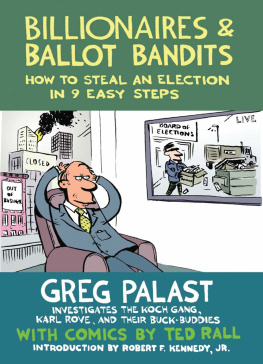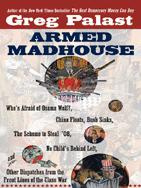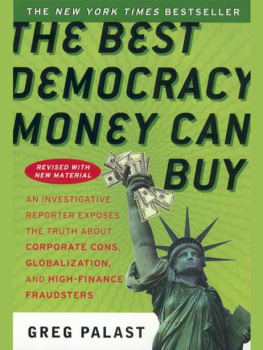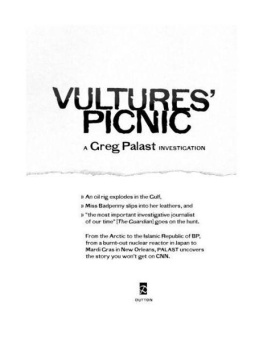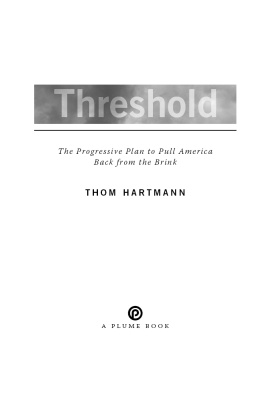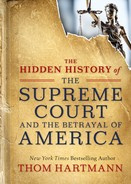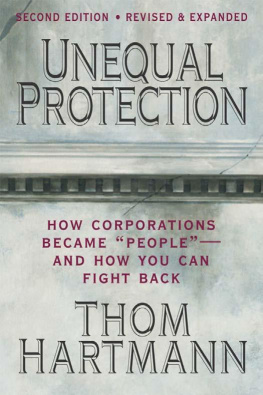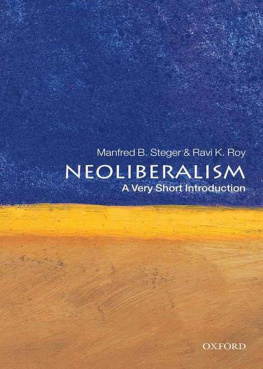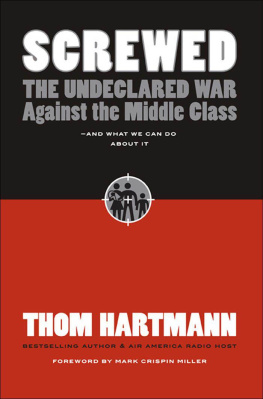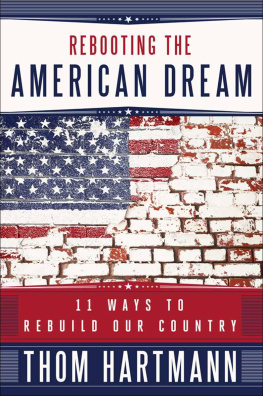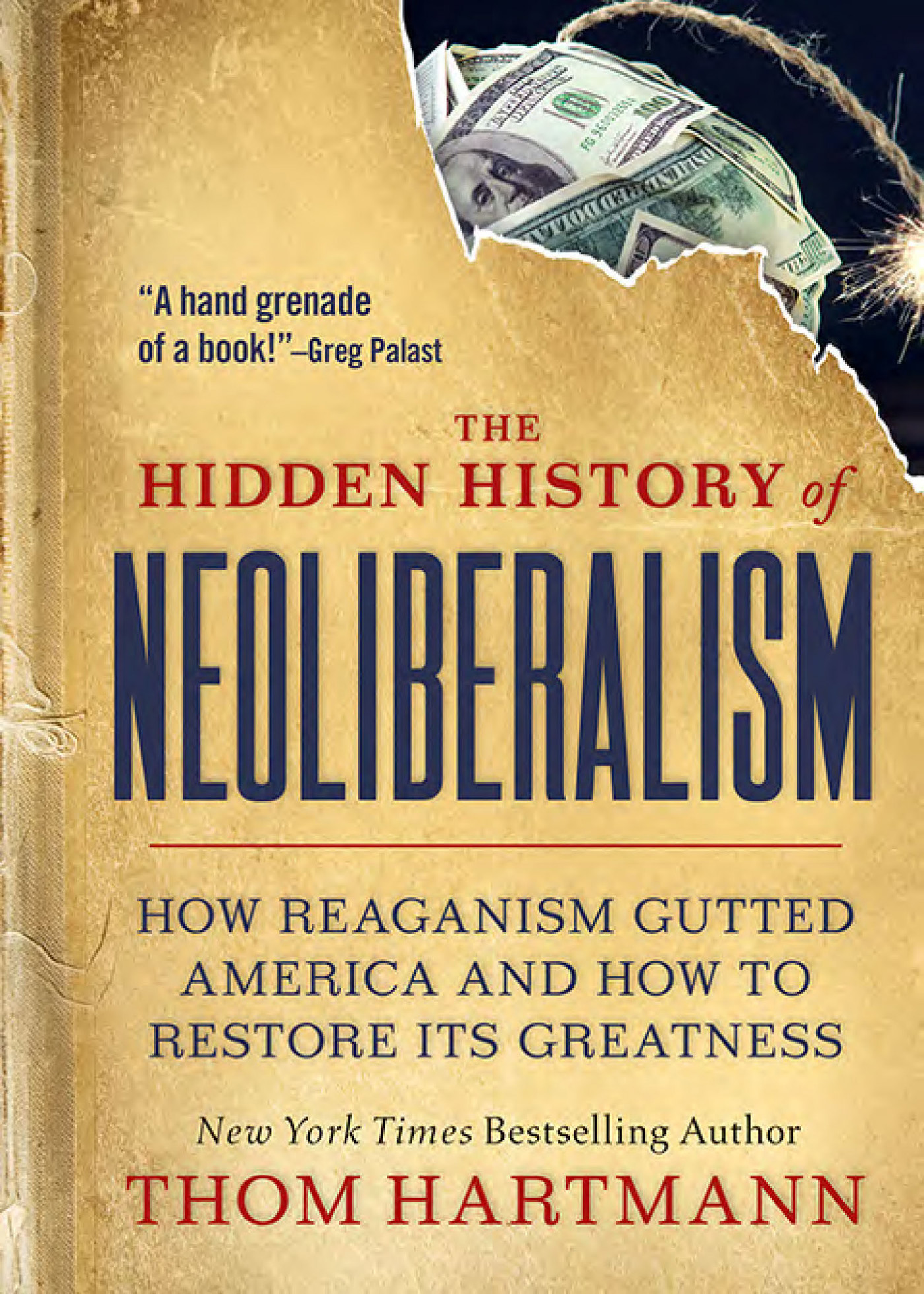Contents
Guide
Page List

The great innovation of Hayek and Mises was to create a defense of the free market using the language of freedom and revolutionary change.... Even as the welfare state and the mixed economy were coming into existence, Hayek and Mises set as their political imperative tearing them down.
Kim Phillips-Fein,Invisible Hands: The Businessmens Crusade Against the New Deal
Neoliberal democracy,... [i]nstead of citizens, it produces consumers. Instead of communities, it produces shopping malls. The net result is an atomized society of disengaged individuals who feel demoralized and socially powerless. In sum, neoliberalism is the immediate and foremost enemy of genuine participatory democracy, not just in the United States but across the planet, and will be for the foreseeable future.
Robert W. McChesney, introduction to Profit Over People:
Neoliberalism and Global Order, by Noam Chomsky
The Hidden History of Neoliberalism
Copyright 2022 by Thom Hartmann
All rights reserved. No part of this publication may be reproduced, distributed, or transmitted in any form or by any means, including photocopying, recording, or other electronic or mechanical methods, without the prior written permission of the publisher, except in the case of brief quotations embodied in critical reviews and certain other noncommercial uses permitted by copyright law. For permission requests, write to the publisher, addressed Attention: Permissions Coordinator, at the address below.

| Berrett-Koehler Publishers, Inc.
1333 Broadway, Suite 1000
Oakland, CA 94612-1921
Tel: (510) 817-2277, Fax: (510) 817-2278
www.bkconnection.com |
Ordering information for print editions
Quantity sales. Special discounts are available on quantity purchases by corporations, associations, and others. For details, contact the Special Sales Department at the Berrett-Koehler address above.
Individual sales. Berrett-Koehler publications are available through most bookstores. They can also be ordered directly from Berrett-Koehler: Tel: (800) 929-2929; Fax: (802) 864-7626; www.bkconnection.com
Orders for college textbook/course adoption use. Please contact Berrett-Koehler: Tel: (800) 929-2929; Fax: (802) 864-7626.
Distributed to the U.S. trade and internationally by Penguin Random House Publisher Services.
Berrett-Koehler and the BK logo are registered trademarks of Berrett-Koehler Publishers, Inc.
First Edition
Paperback print edition ISBN 978-1-5230-0232-0
PDF e-book ISBN 978-1-5230-0233-7
IDPF e-book ISBN 978-1-5230-0234-4
Digital audio ISBN 978-1-5230-0235-1
2022-1
Book production: Linda Jupiter Productions. Cover design: Wes Youssi, M.80 Design. Edit: Elissa Rabellino. Interior design: Good Morning Graphics. Proofread: Mary Kanable. Index: Paula C. Durbin-Westby.
CONTENTS
by Greg Palast
FOREWORD
by Greg Palast
Milton Friedmans feet didnt touch the floor. This was the University of Chicago, 1975, and Professor Friedman was God. God sat in a chair, the little mans feet dangling, as he humiliated students who deviated in the slightest from the Gospel of Friedman, what he dubbed neoliberalism.
I kept my head down. Friedman didnt know I was sent to study with him and his Chicago Boys by the citys labor leadership. They wanted to know if this Friedman was as dangerous as he seemed. Friedman was the not-so-hidden hand behind the new dictatorship of Chiles Augusto Pinochet. Pinochet liked to throw dissenters out of helicopterswhatever it took to create what Friedman called The Miracle of Chile, a radical right-wing makeover of the nations economy.
Bless Thom Hartmann for exposing the neolib Genesis story: the Miracle in Chile was a con. Hartmann notes that Chiles economy went into free fall under the Chicago Boys regime; unemployment hit 30 percent.
Hartmanns book is a beautiful history of an ugly idea: that greed is good and uncontrolled greed is better, even if it leads to mass misery.
Squeezed into this thin volume is a huge amount of I didnt know that! info thats both horrifying and weirdly fun. I didnt know that George W. Bushs Medicare Modernization Act of 2003 resulted in the quiet privatization of nearly half of Medicares services. Yow!
Hartmanns most original contribution is to posit that the antidote for neoliberalisms poison is not a new New Deal, but rather Alexander Hamiltons American Plan. In 1791, at George Washingtons request, Hamilton drafted a guide for strategic tariff protection, government support for jobs and industry, government regulation of products, and direct control of banking.
Hamiltons American Plan made America richand China too. Hartmann dismisses the baloney that Chinas manufacturing boom was the result of throwing the economy into the free-market soup. Hartmann was studying in China in 1986 when Chairman Deng and Premier Zhao came down on the side of Hamilton after a two-year fight with Friedmanite economists within the Communist Party.
The losing neolibs had wanted China to take One Big Step and follow the Soviet Unions shock therapythat is, jump straight into the freezing waters of totally rule-free markets, uncontrolled international trade, privatization of industry, and shrunken government.
We know what happened: Russia is still in shockwages and production have shriveled, life expectancy has fallen, while Chinas government-guided industry now produces one-eighth of the planets goods and services.
And the United States? As Hartmann puts it in a chapter title: America adopted neoliberalism, and all I got was this made-in-China T-shirt.
The neolibs useful idiot, pundit Thomas Friedman, praised deregulation as [t]he Golden Straitjacket... [which] first began to be stitched together and popularized by British Prime Minister Margaret Thatcher... [and] was soon reinforced by Ronald Reagan.
Hartmann, a happy-ending kind of guy, tells us how America can unhook the straitjacket, tear off the T-shirt, and escape the neoliberal madhouse.
Thats quite a feat in 192 pages.
Greg Palast, an economist turned investigative reporter, is coauthor of Democracy and Regulation and The Best Democracy Money Can Buy
I NTRODUCTION

The Plot to Save the World
Back in 1938, a group of economists and philosophers met in Paris to consider how to save the world from itself. At the time, Mussolini, Hitler, and Franco were turning their nations into fascist concentration camps, while in Russia Stalin was killing millions of citizens he considered disloyal or unreliable, using everything from famine and gulags to firing squads.
After those three European democracies had gone full fascist, and Russia had bypassed democracy altogether to embrace a tyrannical form of communism, the Paris delegates were understandably worried about the future of democratic governance both in Europe and around the world. And the rise of communism and fascism had impacted every one of their lives personally.


